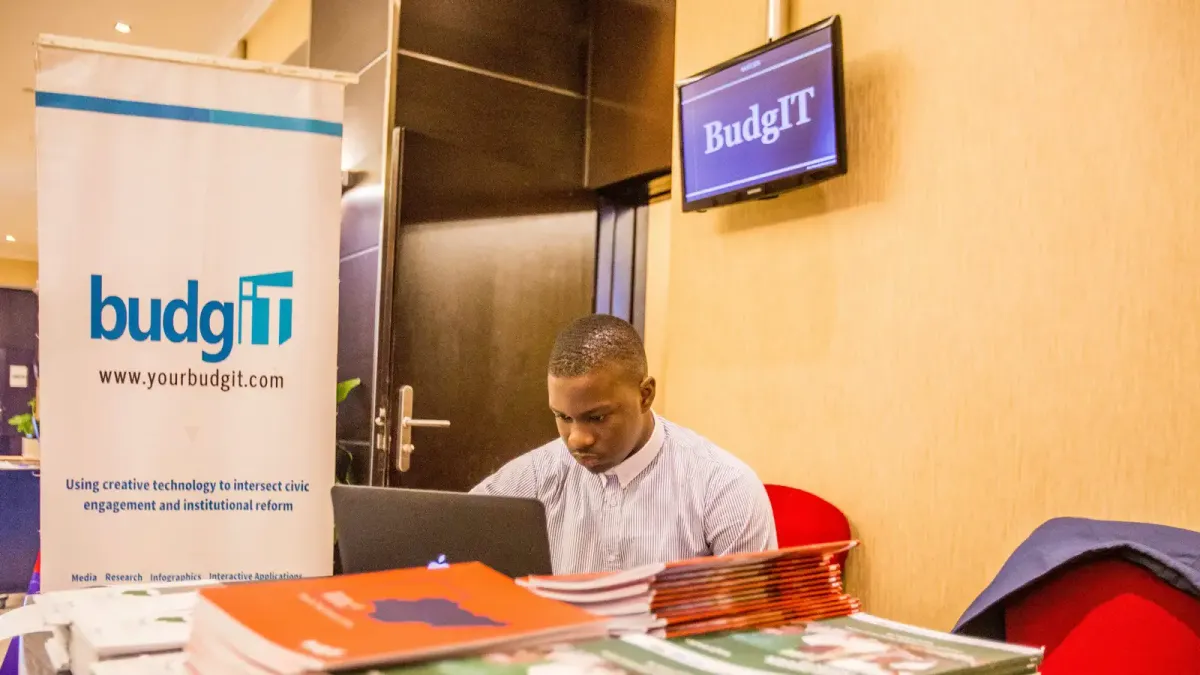Where Nigerians can track government allocations and spending online
Nigeria's President Bola Tinubu is scheduled to present the 2024 budget to the national assembly this Wednesday. We have curated a list of online platforms where Nigerians can keep tabs on government expenditure.

On Monday, the Federal Executive Council (FEC) of Nigeria granted approval to the proposed ₦27 trillion budget for the year 2024. According to reports from local media, President Bola Tinubu is scheduled to present the budget to the national assembly on Wednesday.
Criticism arose earlier this month when the specifics of the supplementary budget were disclosed, with many Nigerians expressing concerns about items such as funding for a Presidential Yacht and the first lady's office, characterising them as irresponsible government expenditures.
Lagos, the economic hub of the country, garnered attention a few weeks ago when Funso Doherty, the governorship candidate of the African Democratic Congress for the 2023 elections, penned an open letter to Babajide Sanwo-Olu, the governor of Lagos State.
In the letter, Doherty raised challenges to certain public procurement awards by the state government. Many of the projects mentioned in his letter were criticised by various commentators for either contravening procurement laws or being deemed as misplaced priorities.
Nigeria has a long history of funds misappropriation. Between 2019 and 2021, the Independent Corrupt Practices and Other Related Offences Commission (ICPC) managed to recover assets totalling ₦2.8 billion that had been diverted or embezzled under the constituency projects scheme by lawmakers.
Over the years, both media outlets and civil society organisations have undertaken independent or collaborative initiatives to scrutinise and report on the government's financial allocations and spending.
In this article, we curated some of the online platforms where citizens and journalists can track government spending.
UDEME
Launched in 2018 by the Centre for Journalism Innovation and Development, UDEME is a social accountability intervention platform designed to enable citizens to hold the government accountable for how funds released for developmental projects are spent.
Through its reporters, commonly referred to as U-Monitors, UDEME tracks projects across the country's 36 states and the FCT.
As of October 2022, the platform has tracked more than 2500 and produced over 1,000 investigative reports on various projects. Through this tracking, some of the abandoned projects are usually completed by those concerned.
UDEME also works with the ICPC to deepen the fight against corruption. Aside from its reporters, the platform organises an orientation week to educate citizens on how to leverage its data for advocacy in their communities.
“Before now, most initiatives addressing opacity around the implementation of government projects have done so by relying on budgetary allocations alone. UDEME goes a step further: to link appropriation to actual monetary releases for present and past projects,” according to Ijeoma Okereke-Adagba, UDEME’s programme officer.
Tracka
Tracka is an online platform by BudgIT, that enables citizens to collaborate, track and give feedback on public projects in their community.
Since it was launched in 2014, Tracka has monitored over 17,811 zonal intervention projects, federal government consolidated projects, state government projects and local government projects across Nigeria.
Govspend
GovSpend provides citizens with details about the Federal Government's spending. It offers daily treasury statements that provide real-time insights into the government's expenditure concerning fiscal matters.
BudgIT, a Nigerian civic tech organization, developed the GovSpend website using data sourced from the country's Open Treasury portal. This platform empowers researchers, citizens, journalists, and civil society organizations (CSOs) to analyze government spending data sourced directly from the treasury.
Additionally, BudgIT has established a media fellowship program that trains investigative journalists on how to utilise data from the portal for reporting on social accountability. This initiative aims to enhance transparency and foster informed public discourse on government expenditure.
NOCOPO
The Nigeria Open Contracting Portal (NOCOPO) is a government-owned platform designed to offer information about public procurement in the country. This portal publishes procurement records, providing details on every stage of the procurement process, spanning from planning and advertisement to tendering and award.
Government ministries, departments, and agencies (MDAs) use the portal to submit their procurement plans and records. These submissions include essential information such as project title, cost, vendor name, procurement method, project location, and implementation status.
Budeshi
Budeshi provides users with the ability to access procurement data from more than 90 MDAs at the federal level in Nigeria. This data includes details like budget amounts, contract amounts, contractor information, project locations, and more. The information available on the portal is sourced through freedom of information requests submitted to these MDAs in accordance with the Freedom of Information Act (2011).
Budeshi is an initiative of the Public and Private Development Centre in partnership with the School of Media and Communication, Pan-Atlantic University and Centre for Journalism Innovation and Development. The word, Budeshi means “open it” in Hausa language.
Open Nigerian States
The Open Nigerian States, a collaborative initiative between BudgIT and the British Council launched in 2020, aims to facilitate the discovery and accessibility of open state government data.
Beyond serving as a mere data repository, it actively supports policy publishers in preserving data. On Open Nigerian States, each state has a distinctive identifier portal managed by representatives from the budget or planning commission of that specific state.
Follow the Money
Follow The Money is a project established by Connected Development [CODE], co-founded by Hamzat Lawal. It monitors government spending and international aid, providing citizens with information through visualisations and stories on how these funds are deployed in rural communities.
In addition to the platforms mentioned earlier, information on government expenditures can also be found on the budget office of the federation and the open contracting portals of individual state governments.
Disclosure: The author of this article, Johnstone Kpilaakaa, previously worked as a reporter at UDEME. He is currently a GovSpend Media Fellow at BudgIT.







Comments ()